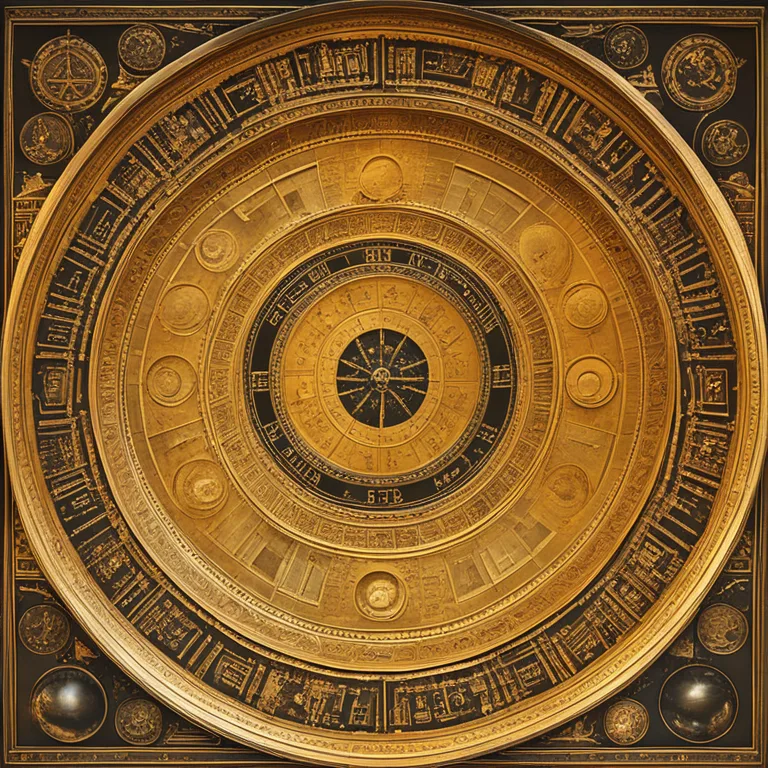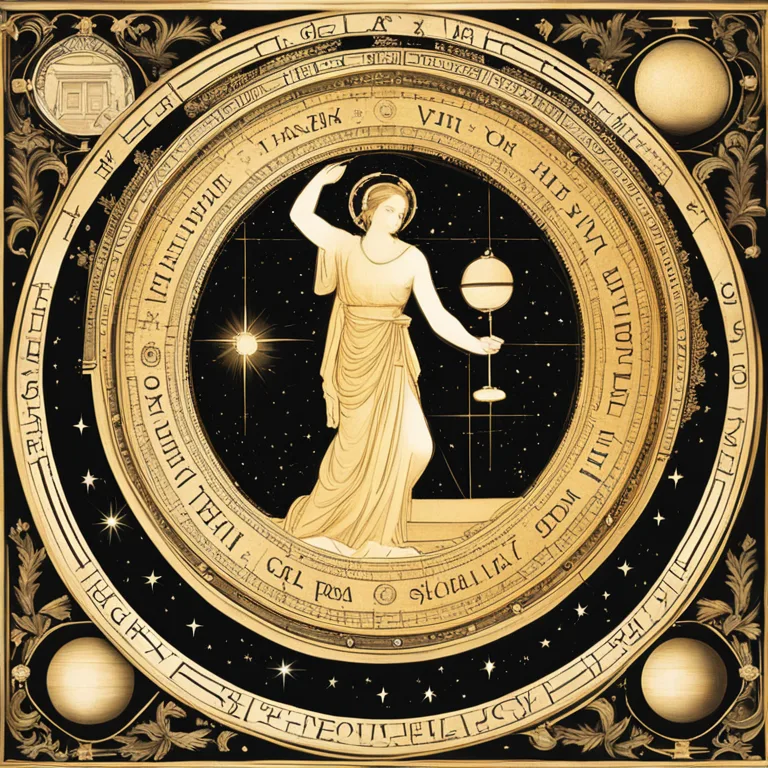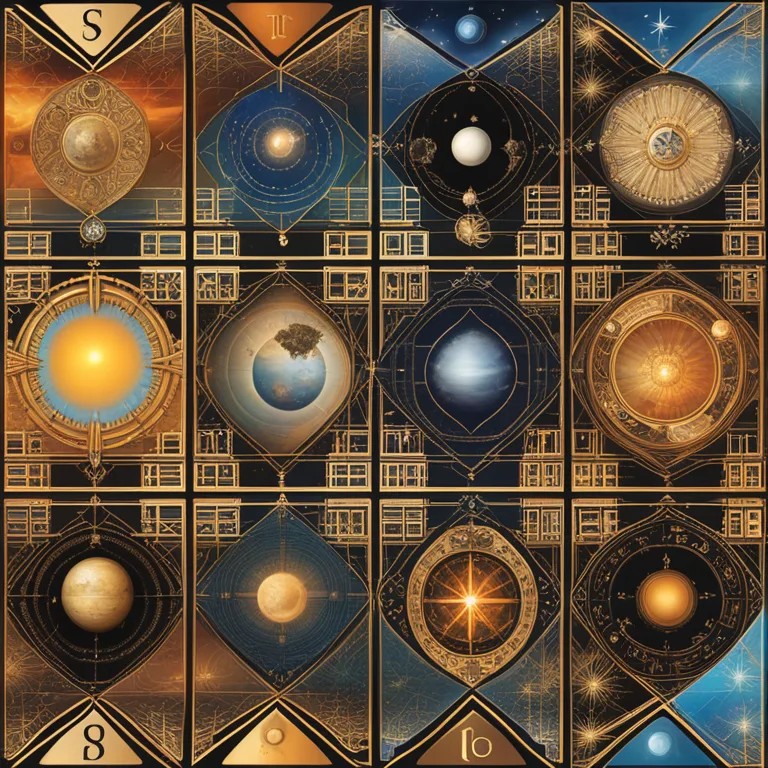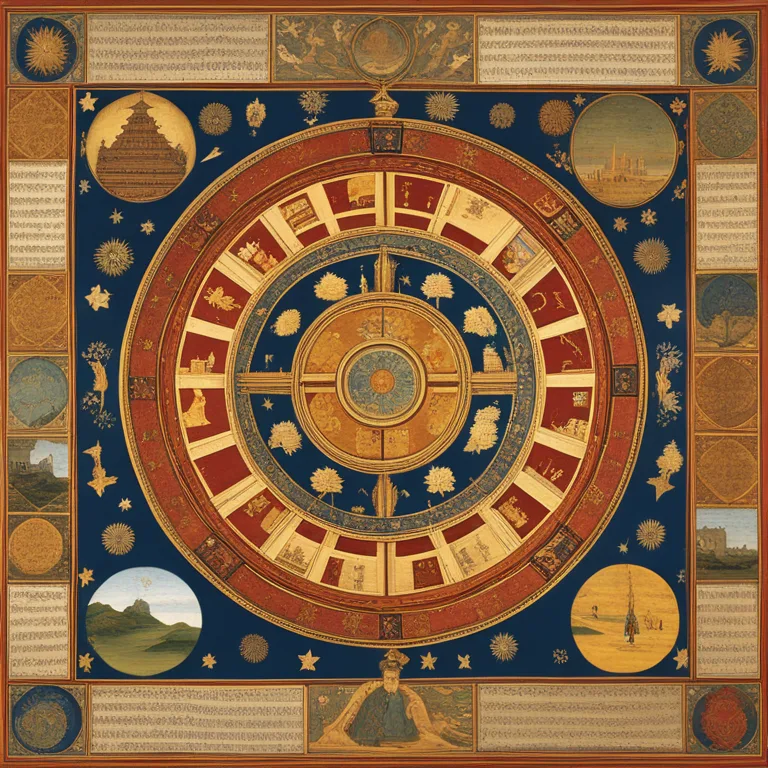
The Origins of Astrology: A Linguistic Journey
Trace the linguistic roots of astrology and understand how ancient observations of the stars gave rise to a word that's synonymous with cosmic insight.
article by Priya Deshmukh
The Intriguing Linguistic Roots
Astrology's etymology is as intriguing as its practice. The term finds its origins steeped in ancient vocabularies, having been passed down through generations and cultures. Originally, astrology as we know it today was inseparable from astronomy—the systematic observation and study of celestial bodies. It was only over time that astrology took on its current identity, focusing on the influence of the cosmos on human affairs, separating from the science of astronomy. Its linguistic journey begins in ancient Greek civilization, capturing a relationship between the stars and the human story.

Astrology’s Greek Ancestry
The word 'astrology' comes from the Greek words 'astron,' meaning 'star,' and 'logos,' which translates to 'word,' 'reason,' or 'plan.' Therefore, astrology literally means 'the study of the stars' or 'the logic of the stars.' This linguistic origin underscores the initial academic and scholarly approach to astrology thousands of years ago, where celestial movements were recorded, patterns were studied, and meanings were ascribed to the heavens above.

The Western Expansion of Astrological Practice
As astrology’s practice traversed West, the term gradually found its way into Latin ('astrologia') and subsequently the Old French ('astrologie'), before solidifying its place in Middle English as 'astrologie,' then eventually modern English, 'astrology.' These linguistic shifts mirrored the evolving practice of astrology, from precise academic discipline to a more interpretive art form that examines individual and collective human experiences through a cosmic lens.

Astrology in the Modern Lexicon
Today, astrology has a firmly established presence in the contemporary lexicon, often associated with horoscopes and zodiac signs. As we approach 2024 and beyond, astrology continues to gain popularity, with many looking to the stars for guidance on personal growth, relationships, and life decisions. Its etymological journey reminds us of its rich origins and the sustained desire to seek answers from the skies.

The Shift Towards Personal Interpretation
While the term 'astrology' itself has not fundamentally changed, the way it is applied and understood has undergone a significant transformation. Today's astrology emphasizes personal interpretation and the individual's place in the cosmos. The horoscopes of 2024 and later reflect this shift, focusing on personal insights and future potentials, with astrologers interpreting celestial configurations in ways that speak to our shared human experience.
Conclusion
The etymological exploration of astrology is not just about tracing the roots of a word; it's about understanding the evolution of a practice that has captivated humanity for millennia. As modern astrology looks to the future, it continues to be shaped by both its linguistic heritage and contemporary cultural influences.
Published: 12/29/2023
Modified: 12/29/2023
More predictions
Come back here soon to learn more about yourself and your future


The Influence of Birth Date on Your Astrological Profile
Discover how your birth date shapes your astrological sign, personality traits, and cosmic destiny in the astrological realm.


The Cosmic Dance of Astrology in Love
Discover how astrology influences romantic relationships, and what the stars say about love compatibility in the modern era.


Moon's Zodiac Position Today
Discover which astrological sign hosts the Moon today and learn how this celestial body influences your daily horoscope, emotions, and compatibility.